Four years after introducing its e-Power hybrid technology in the Qashqai, a new, more efficient, next-generation powertrain will be available from September.
This next-generation system has been re-engineered to improve fuel efficiency and lower emissions.
CO2 emissions for the new powertrain fall from 116g/km to 102g/km, while fuel efficiency improves from 53mpg to 62mpg giving it a theoretical range of 745 miles on a full tank, according to official figures.
David Moss, senior vice president, region research and development at Nissan, said: “This new version of e-Power reflects everything we’ve learned from developing electric motor drive systems for Europe.
“We’ve analysed what worked in our previous generations, what appealed most to customers, and re-engineered the system to deliver maximum efficiency, lower emissions and a quieter, more refined drive - all with the same performance as a diesel.”
The 1.5-litre petrol engine is used only to generate electricity which is distributed directly to the electric motor to drive the wheels, as well as to charge the battery if needed.
Unlike traditional hybrids, there is no gearbox and coupling to combine petrol power and electric energy to drive the wheels, meaning response is instant and the drive is smooth, just like an electric vehicle (EV), says Nissan.
A regenerative braking system on e-Power also converts kinetic energy into electrical energy, fed back into the battery.
New powertrain unit
Nissan has developed a new five-in-one modular powertrain unit, which integrates the electric motor, generator, inverter, reducer and increaser into a compact and lighter package.
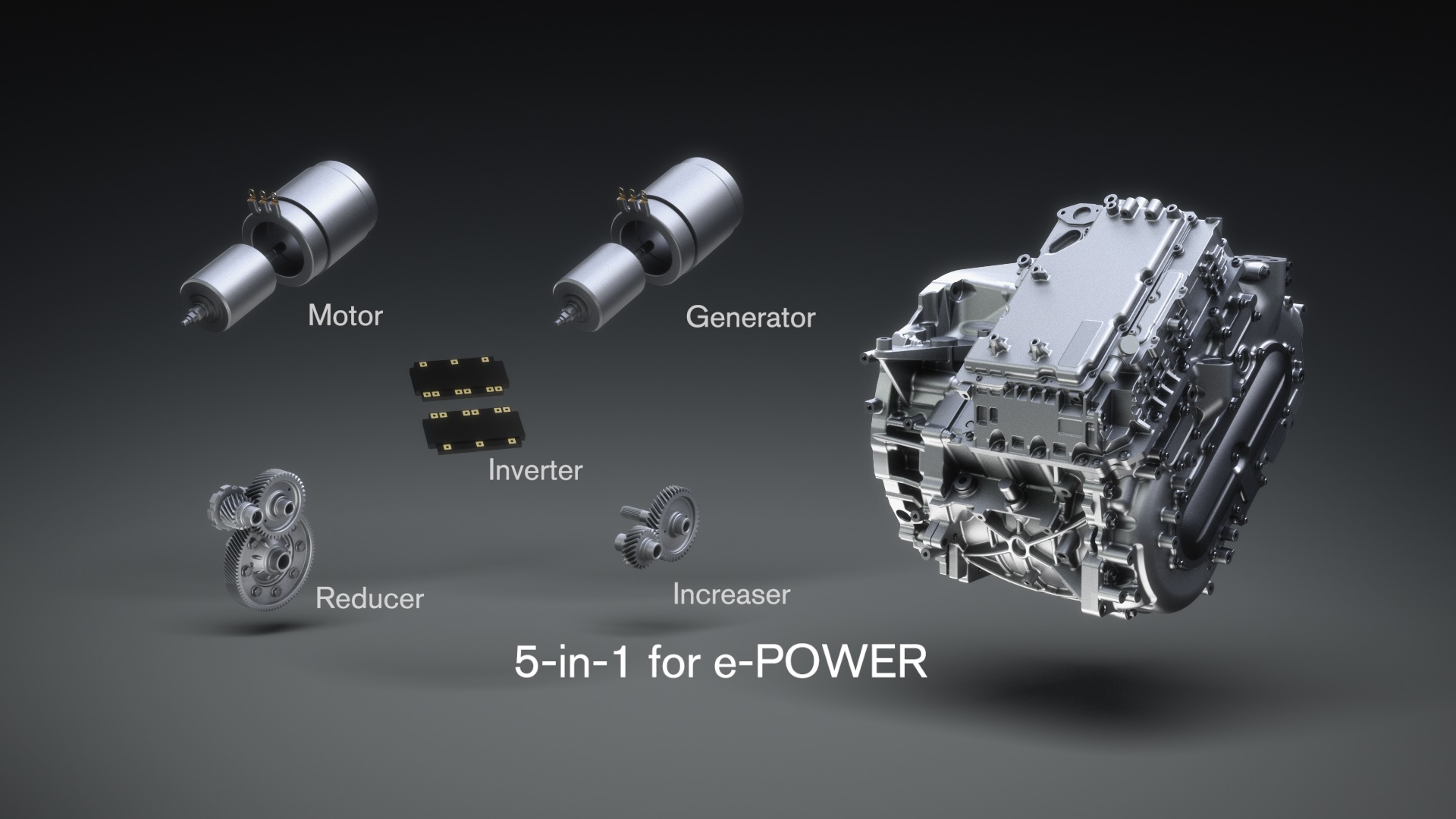
Combined with improvements to engine calibration and sound insulation, the system reduces both noise and vibration under load.
Overall, power is up by 11kW, at a maximum of 151kW. The battery capacity is unchanged at 2.1 kWh.
Despite having a similar three cylinder 1.5-litre turbo configuration as the out-going version, the engine is all-new and is now dedicated to its application in e-Power.
It adopts Nissan’s proprietary ‘Starc’ combustion concept, which has lifted thermal efficiency to 42% by stabilising in-cylinder combustion, which enables the engine to operate more quietly and effectively at lower speeds.
A new, larger turbo has been fitted which also brings efficiency gains, allowing a 200rpm reduction in engine speeds during highway driving, contributing to the lower overall noise level.
The variable compression ratio technology found on the previous version has been rendered redundant by the other changes to the engine.
Additional engine efficiency has been generated by the change to 0W16 lubricating oil, reducing internal friction.
Customers will also benefit from longer service intervals which have been extended from 9,000 miles to 12,000 miles.
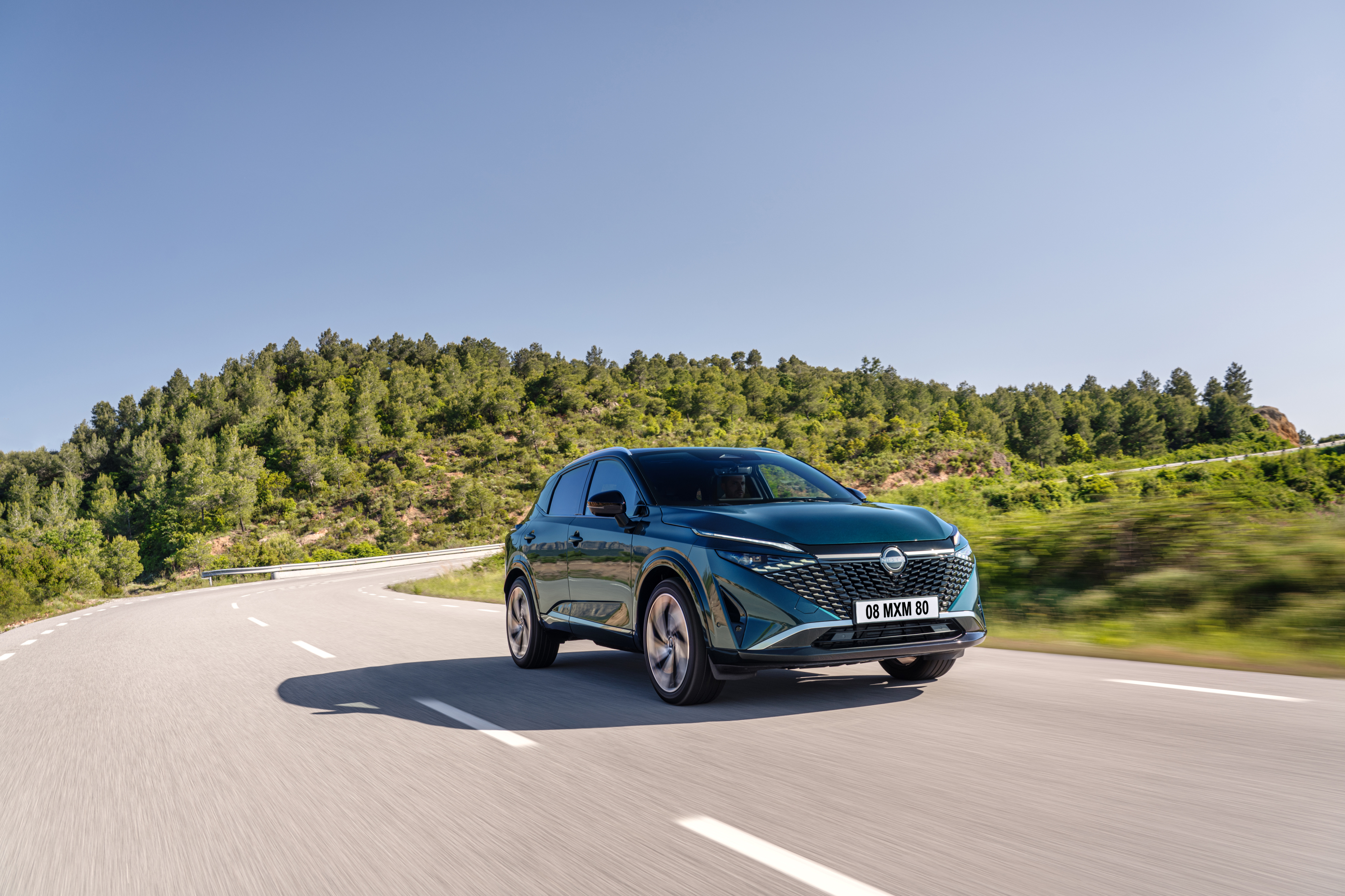
Clíodhna Lyons, region vice president, product and services planning at Nissan, added: “This generation of e-Power is the result of combining our customer insights with Nissan’s vision for electrified powertrains.
“It takes further the promise of e-Power by delivering much better efficiency without any compromise on performance.
“Best fuel efficiency and range – even on the highway – with a pleasant, refined, everyday EV driving. And all that, without changing the way we are used to live with a traditional vehicle.
“More than ever, it represents a seamless transition for our customers towards full EV and a key pillar of our electrification strategy.”
The latest Qashqai equipped with new e-Power, which is built at Nissan’s factory in Sunderland, will be available in European markets, including the UK, from September 2025.
Nissan would not say whether the new e-Power technology will be rolled out to other models.



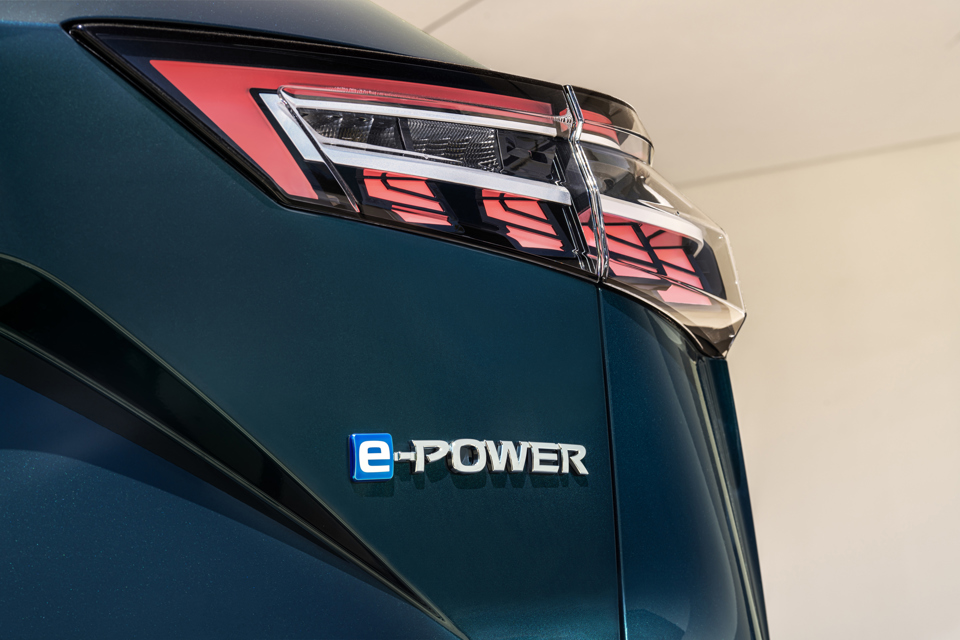





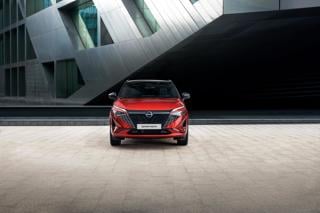
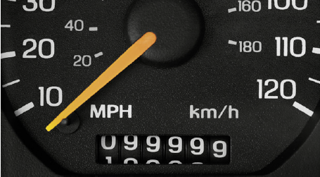













Login to comment
Comments
No comments have been made yet.